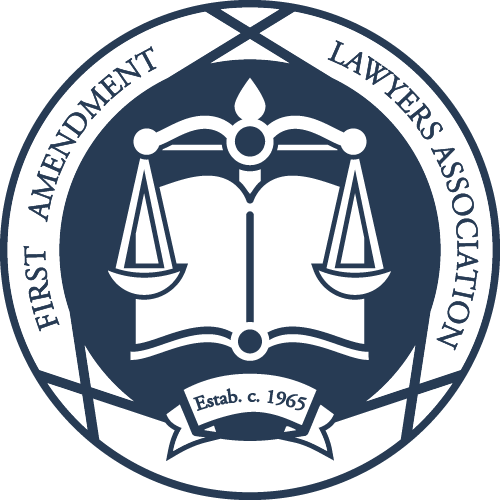The First Amendment Lawyers Association today announces its opposition to the adoption, by the Ohio Department of Health, of proposed rules that would drastically curtail the ability of physicians to provide care to transgender patients or to provide patients with “any resources or information on where or how to receive such care,” in blatant derogation of physicians’ freedom of speech protected by the First Amendment. The proposed rules may be reviewed here: Post+for+Public+Comment+3,+59,+83.pdf (ohio.gov).
If adopted, these rules would unconstitutionally interfere with both Freedom of Speech and the doctor-patient relationship. The Supreme Court has explained that “The First Amendment requires heightened scrutiny whenever the government creates a regulation of speech because of disagreement with the message it conveys. . . . That reality has great relevance in the fields of medicine and public health, where information can save lives.” Sorrell v IMS Health, Inc., 564 U.S. 552, 566 (2011). “[D]octors must be able to speak frankly and openly to patients,” and regulations that interfere with that ability are presumptively unconstitutional. Wollschlaeger v. Governor, State of Florida, 848 F.3d 1203 (11th Cir. 2017) (striking down, on free-speech grounds, a state law prohibiting certain physician-patient communications).
The First Amendment does not merely protect physicians’ rights to convey information to their patients. It also protects the patients’ rights to “receive information and ideas”—including information and ideas that are disfavored by some members of the government. See Kleindienst v. Mandel, 408 U.S. 753, 762 (1972). The First Amendment also prohibits states from barring or penalizing the sharing of information with patients about medical services available to them in other states. See Bigelow v. Virginia, 421 U.S. 809, 824 (1975). And the Supreme Court has held that patients have a constitutional right to travel for medical care. See Doe v. Bolton, 410 U.S. 179, 200 (1973) (the Constitution “protect[s] persons who enter [other states] seeking the medical services that are available there”); Dobbs v. Jackson Women’s Health Org., 142 S. Ct. 2228, 2309 (2022) (Kavanaugh, J., concurring: the question of whether a state may “bar a resident of that State from traveling to another State to obtain” medical treatment is “not especially difficult”—”the answer is no”).
Adoption of the proposed rules would violate these constitutional rights of both patients and physicians. It is axiomatic that such an abuse of governmental power is anathematic to the core principles upon which the First Amendment is based. As Justice Robert Jackson, writing for the United States Supreme Court in West Virginia State Bd. of Educ. v. Barnette, 319 U.S. 624 (1943), presciently explained 80 years ago:
Struggles to coerce uniformity of sentiment in support of some end thought essential to their time and country have been waged by many good as well as by evil men. *** As first and moderate methods to attain unity have failed, those bent on its accomplishment must resort to an ever-increasing severity. As governmental pressure toward unity becomes greater, so strife becomes more bitter as to whose unity it shall be. *** Those who begin coercive elimination of dissent soon find themselves exterminating dissenters. Compulsory unification of opinion achieves only the unanimity of the graveyard.
It seems trite but necessary to say that the First Amendment to our Constitution was designed to avoid these ends by avoiding these beginnings. There is no mysticism in the American concept of the State or of the nature or origin of its authority. We set up government by consent of the governed, and the Bill of Rights denies those in power any legal opportunity to coerce that consent. Authority here is to be controlled by public opinion, not public opinion by authority.
If there is any fixed star in our constitutional constellation, it is that no official, high or petty, can prescribe what shall be orthodox in politics, nationalism, religion, or other matters of opinion or force citizens to confess by word or act their faith therein. [Emphasis added.]
The message of Barnette is a simple one to understand and apply: “Unless called out and stopped, coercive elimination of officially disfavored expression will undermine the freedoms protected by the First Amendment and ultimately destroy American democracy.” Every American, regardless of their politics, has the right to be heard and to be protected against government retaliation for exercising their Freedom of Speech without fear of official retaliation. Federal,State, and local governmental officials must welcome and encourage, not attempt to stifle, expression. Anti-transgender legislation is too reminiscent of Nazi fascism to be tolerated, and must be opposed at every turn.
FALA stands ready, willing and able to resist all such efforts to “prescribe what shall be orthodox in politics, nationalism, religion or other matters of opinion,” and urges all those who cherish the fundamental values upon which our constitutional system is based to vigorously do so through public and legislative debate and judicial challenges.
The First Amendment Lawyers Association, founded in 1965, is a national association of attorneys dedicated to preserving the Freedom of Expression guaranteed by the First Amendment and State Constitutions. Its members represent individuals and businesses throughout the United States engaged in constitutionally protected expression, have litigated many of the landmark First Amendment cases decided during the past eight decades, and often appear amicus curiae in the Supreme Court of the United States and other appellate courts throughout the nation in cases in which First Amendment rights are at stake.
